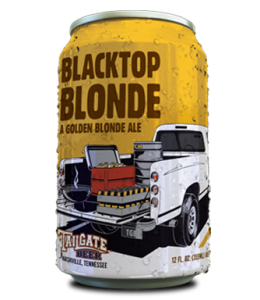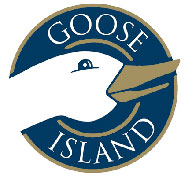
Well, not exactly brand new: TailGate Beer was founded in San Diego, Calif. in 2007 and had been producing its beer under contract at Minhas Craft Brewery in Monroe, Wis. However, TailGate is currently in the process of relocating and plans to open its own production facility in Nashville, Tenn.
TailGate founder Wesley Keegan, in a statement posted to the brewery’s website, said the company has leased a 16,000 sq. ft. facility in the city, nestled on 7.3 acres of land. The move will additionally enable TailGate to open a tasting room, an outdoor craft beer hall, and grow its own hops.
And to get consumers in the state acquainted with the TailGate brand, the brewery has inked distribution agreements with Ajax Turner Distributing in Nashville, and the Tullahoma-based L&H Distributing Co.
“Last year we distributed beer across 14 states. Now, we even export internationally,” wrote Keegan. “This level of distribution and support is absolutely staggering for me.”
In the short term, the company is looking to hire a new brewmaster, yet based on growth ambitions that come through rather loftily in his post, it’s likely that Keegan envisions the development of a much larger staff.
“I admire companies like Sierra Nevada and New Glarus Brewing and aspire to their quality. That said, some of my strongest inspiration comes from companies like Costco, In n Out, Southwest, Starbucks, Google and Apple,” he added. “With the amount of hiring we expect to do over the next 12 months, I’m most excited to meet our new family.”
Sacramento’s Track 7 Brewing Co., on the other hand, is perfectly content to continue growing in home state.
According to The Sacramento Bee, the California brewery has signed a 10-year for a 35,000 sq. ft. facility in the Natomas neighborhood of Sacramento that will, among other things, significantly increase the brewery’s production capacity.
As a result of the expansion, Track 7’s existing facility will be used for pilot batching and the production of sour beer.
“Now, we can take more risks and start pushing our creative boundaries,” co-owner Ryan Graham said in a statement obtained by the Bee. “Demand for our beers is through the roof. As fast as we add new tanks at our Curtis Park facility, that capacity is absorbed. We needed to get ahead of our ability to meet demand for our beer, and this new facility will allow us room to grow.”
Upon completion, capacity will immediately grow to 8,000 barrels. In 2013, the brewery sold 1,200 barrels.
On the legislative front, more change is afoot in Arkansas.
The Associated Press reported earlier this week that a change in the state’s liquor policy would allow for any store with a retail beer permit to sell 32 oz. and 64 oz. growlers for off-premise consumption, provided they are willing to buy the containers, as well as the tanks and pumps necessary to set up the growler station.
Prior to the policy change, brewers without bottling or canning capabilities were selling either at the production site or in restaurants and bars where they delivered kegs only. Essentially, the policy change gives brewers that don’t can or bottle another avenue of sale at retailers that sell for off-premise consumption.
“We’ve gone from two to 19 breweries in the last few years, but a lot of these guys don’t have the ability to produce (bottles and cans),” Michael Langley, director of the state’s Alcohol Beverage Control Division, told the AP. “This will allow those guys to expand and allow them to compete.”

Rather than implementing a flat rate, the DraftServ machines — brought about by a partnership between hospitality group Delaware North and Anheuser-Busch — will charge users by ounces poured.
The way it works, as reported by ESPN’s Darren Rovell: users will show their ID at a cash register and preload $10, $20, or — for the All-Star Game — $50 to then scan at the machine and choose between four beers. Budweiser and Bud Light will cost 38 cents per ounce; Shock Top Lemon Shandy and Goose Island 312 Urban Pale Ale will cost 40 cents per ounce.
“There’s obviously some novelty value to this, but it also allows people to pour what they want,” Jerry Jacobs, principal of Delaware North, told the website. “If they want half of a cup, that’s all they will pay for.”
No word yet on whether the machines, stocked with A-B products, will also feature the talking orange wedge that Shock Top just introduced as part of a new ad campaign.
